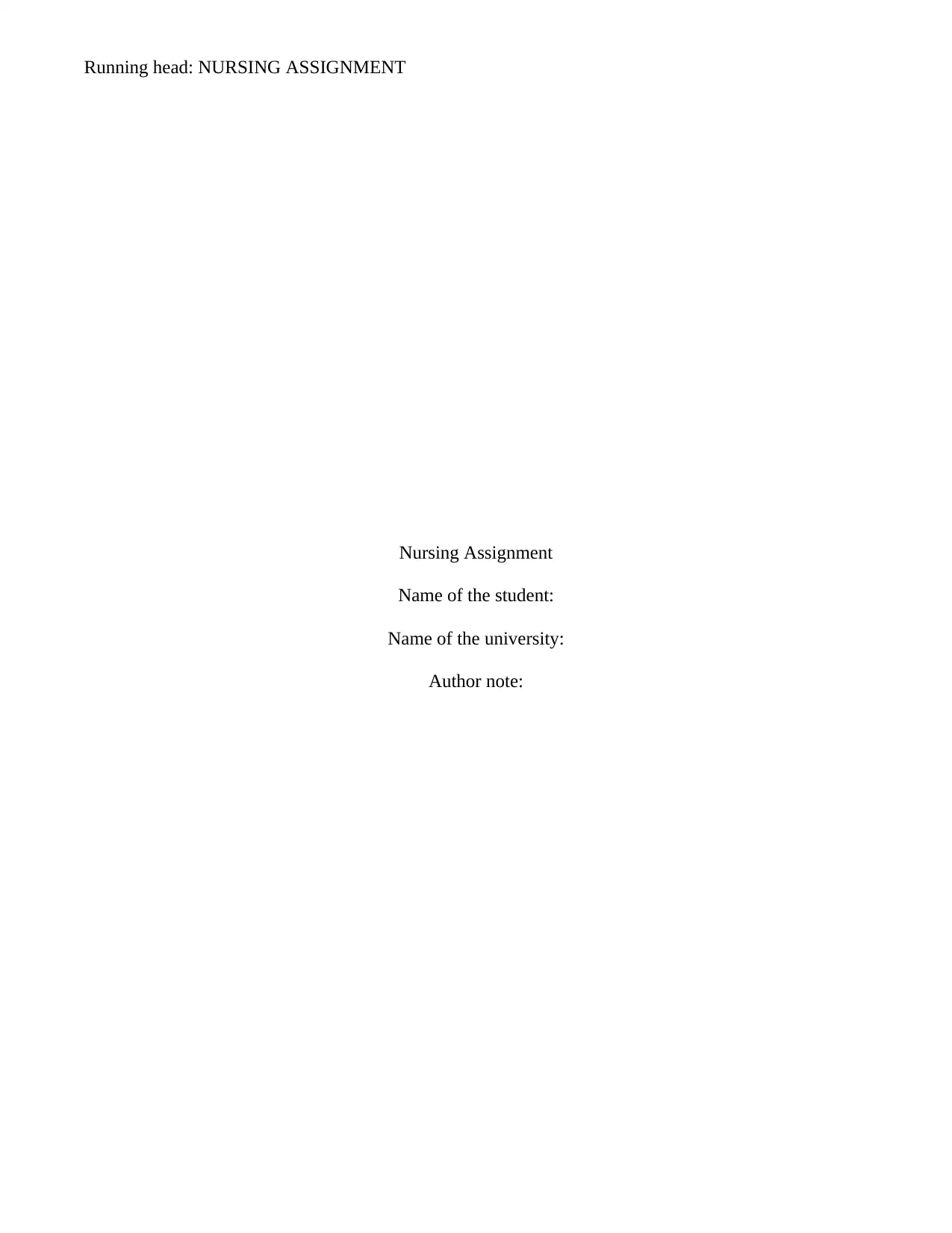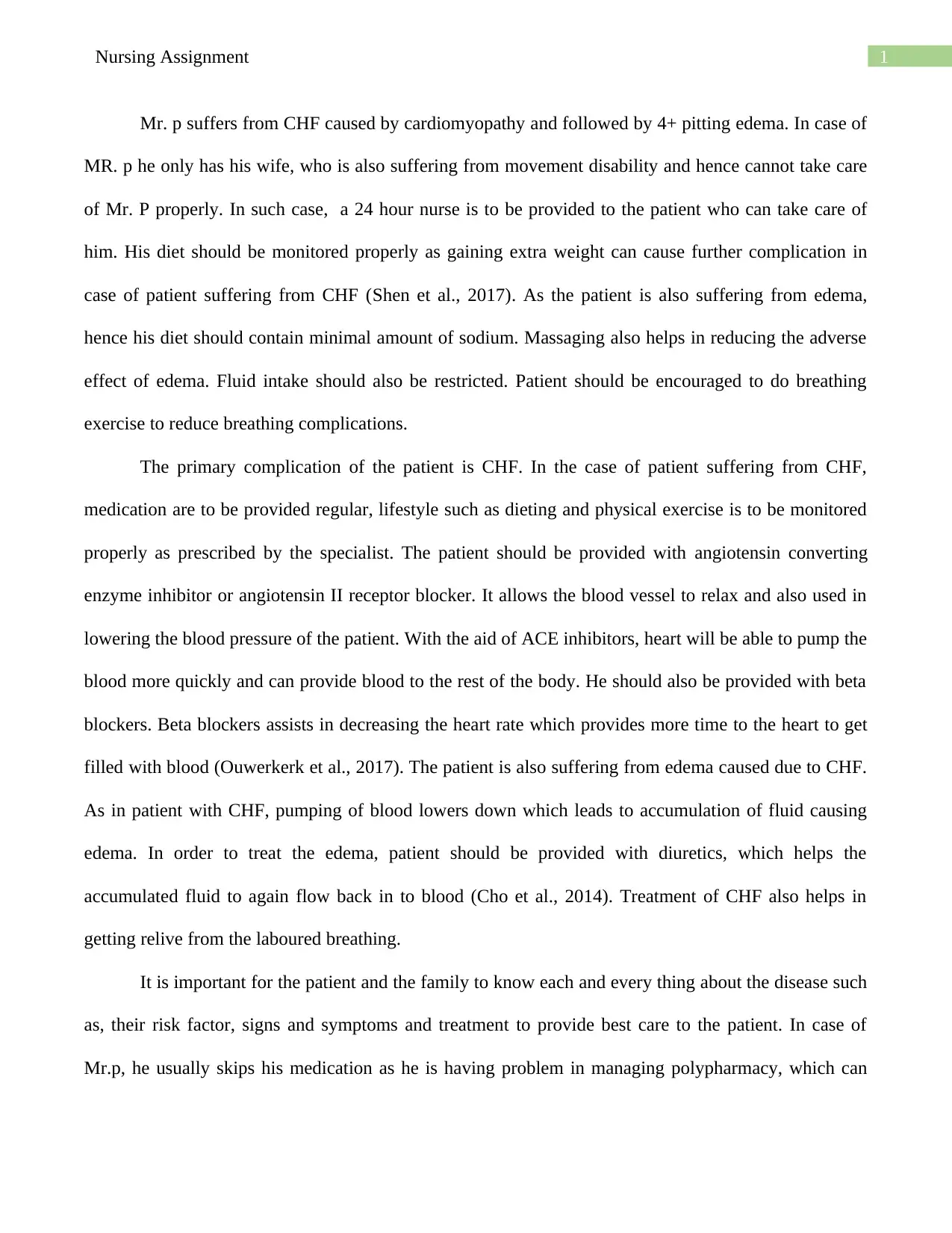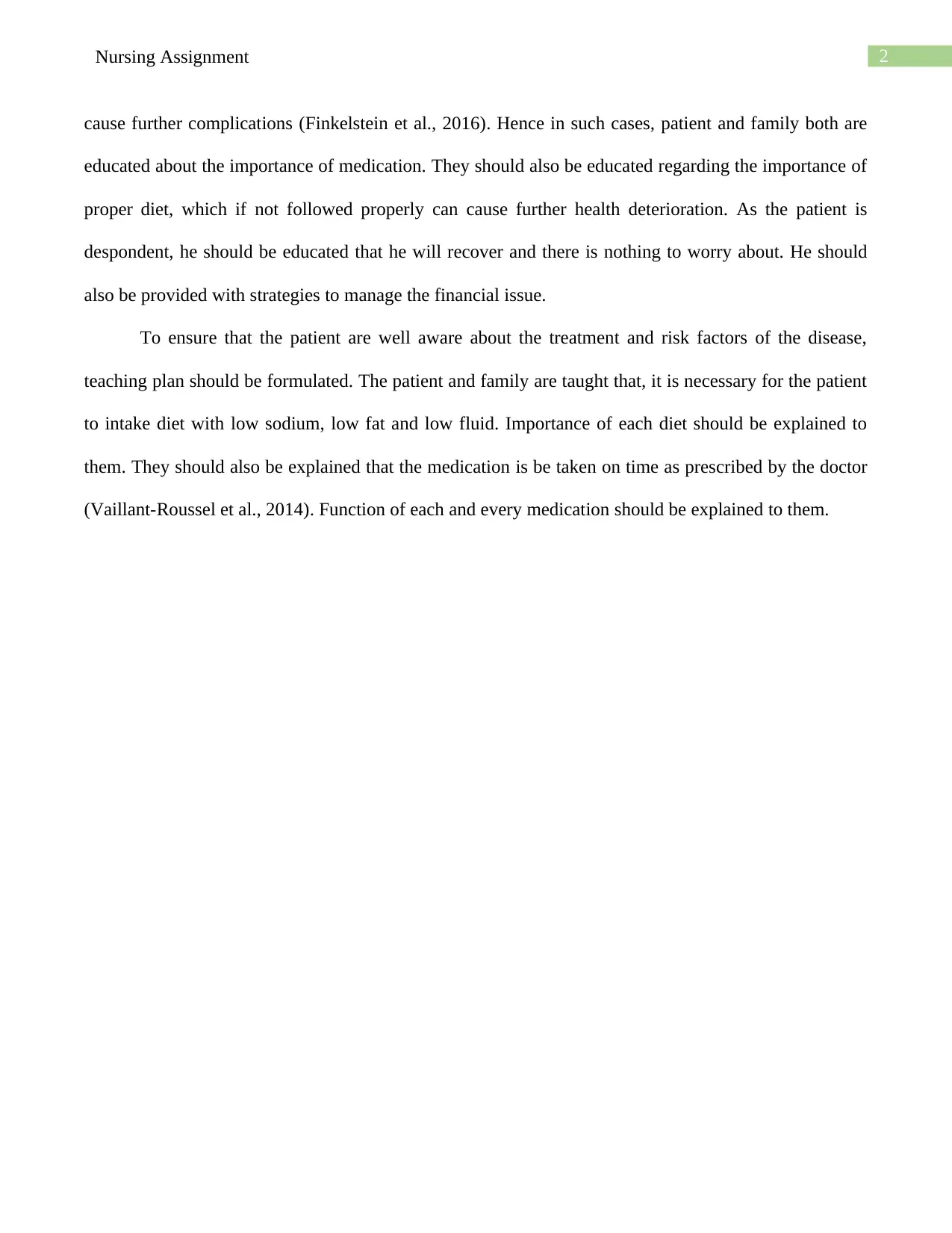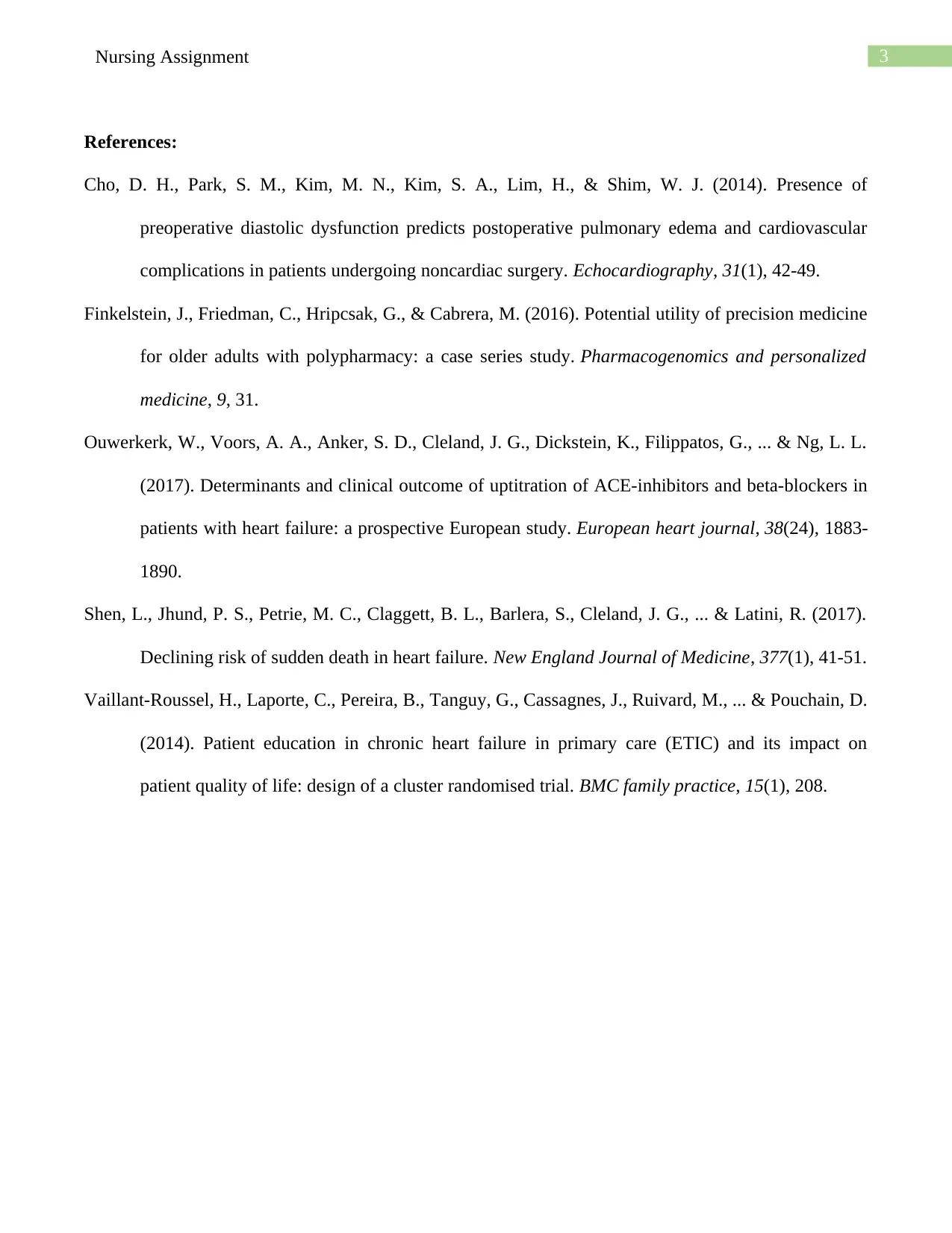Nursing Assignment: Patient Care for CHF and Edema Management
VerifiedAdded on 2023/01/20
|4
|946
|96
Report
AI Summary
This nursing assignment focuses on the care of a patient suffering from Congestive Heart Failure (CHF) complicated by cardiomyopathy and 4+ pitting edema. The report emphasizes the need for a 24-hour nurse due to the patient's and his wife's physical limitations. It highlights the importance of a low-sodium diet, fluid restriction, and massage to manage edema. The assignment details the essential role of medication, including ACE inhibitors, beta-blockers, and diuretics, in treating CHF and its associated symptoms. The patient's non-adherence to medication due to polypharmacy is addressed by educating both the patient and family about the disease, risk factors, and the importance of medication and diet. A teaching plan is proposed to ensure understanding and adherence to the treatment plan, which includes dietary restrictions and medication schedules. The report cites several research papers supporting the recommended treatment and management strategies.
1 out of 4











![[object Object]](/_next/static/media/star-bottom.7253800d.svg)